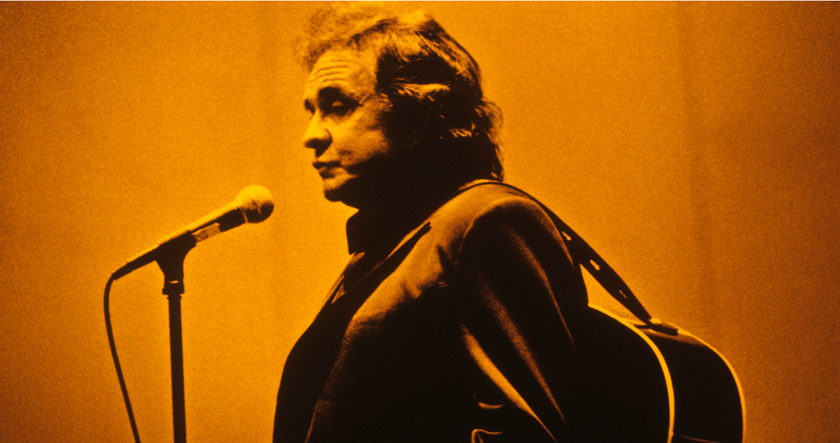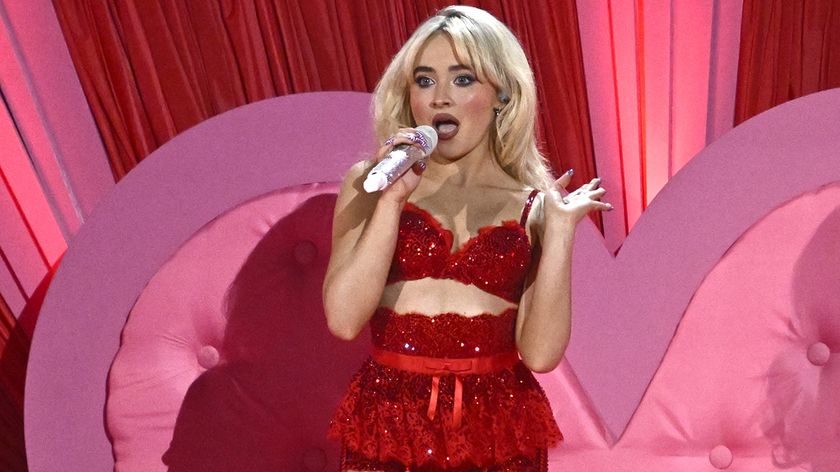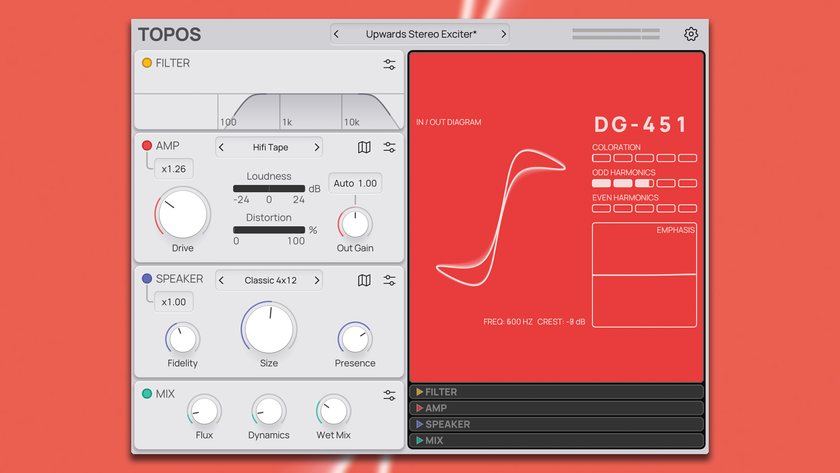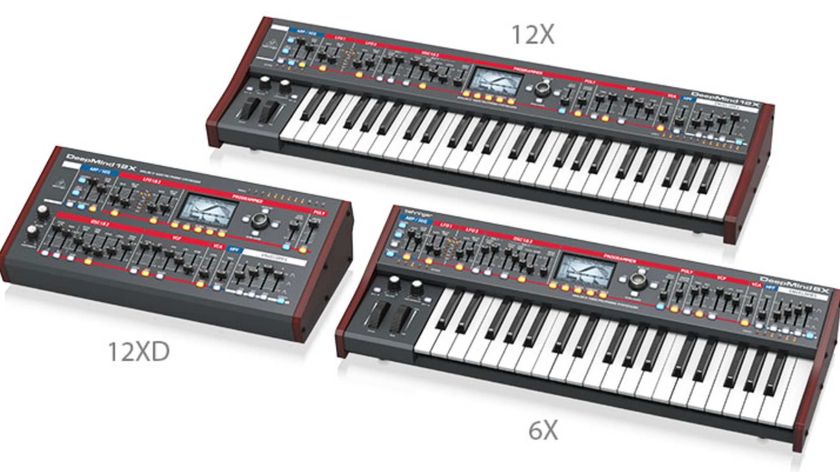Matrix and Futurebound on the changing face of DnB production
Drum 'n' Bass maestros speak out
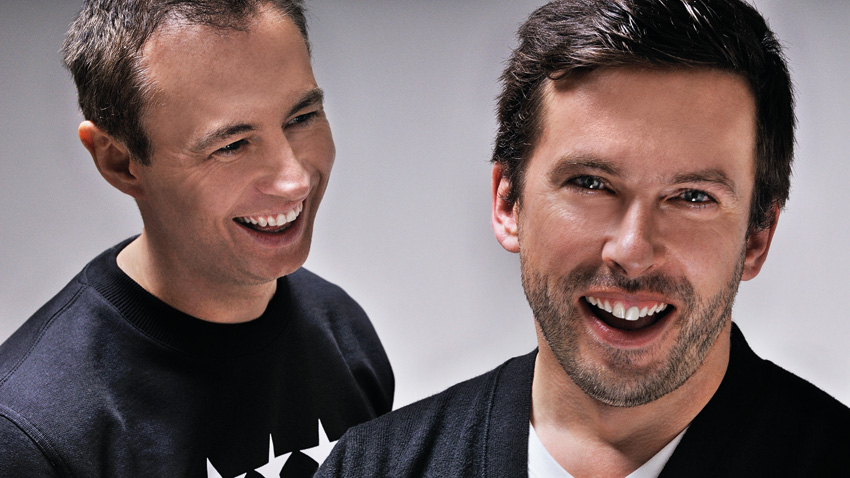
It may be well over 20 years old, but drum 'n' bass is arguably bigger now than it's ever been. Its frantic beats provide soundtracks to adverts, pack out the world's stadiums and have become a ubiquitous presence in the singles and albums charts.
"So many times in those 20 years, people have said drum 'n' bass is finished," laughs Brendan Collins, aka Futurebound, one half of the duo who took the track Control into the UK Top Ten earlier this year. "But that's the great thing about this music: the more people shoot it down, the stronger it gets. And I don't think it's reached a peak, yet… there are bigger and better things to come.
"I don't want to sound like I'm spouting off here," he adds, "but there is some incredibly exciting music being made in this country in 2014. Yes, the sound of drum 'n' bass has gone totally global, but it's the UK that's setting the benchmark."
Although Collins is based in his native Liverpool, and his partner Jamie Quinn - aka Matrix - is in London, the duo have been working together for almost ten years. Their 2007 debut album, Universal Truth, was followed by remix work for the likes of Justin Timberlake and Moby, and the duo have just released a new single, Don't Look Back, on 3 Beat Records.
Can we start by addressing the Liverpool/London situation? Is it literally two studios, over 200 miles apart, with ideas banged across from DAW to DAW?
Brendan Collins: "Yeah, that's the online revolution for you. You can be in different cities, different countries… it really doesn't matter. We each start on different ideas and send them back and forth, changing little bits as we go along. After a few weeks - sometimes, it's months; we are aware that we take far too long to finish things - it gets to a point where we think, 'This is coming together. Let's nail it.'
"That's when a song can benefit from us both being in the room: when you're just doing those final tweaks, the spit and polish, and getting ready for the mixdown. We've both been making records for a long time, and we trust each other to make the right decisions, so even if Jamie's working on his own, I know the song will sound exactly how I want it to sound."
Get the MusicRadar Newsletter
Want all the hottest music and gear news, reviews, deals, features and more, direct to your inbox? Sign up here.
"We each start on different ideas and send them backand forth, changing little bits as we go along." Brendan Collins
Have you both got identical setups?
Jamie Quinn: "We're both working on Cubase 7.5, but he's on a Mac and I'm on a PC. I used to work on a Mac, but mine died without warning a few years ago and my brother [fellow DnB producer Optical] said, 'Why don't you let me build you a PC? It'll be half the price and give you twice the horsepower'. My brother is biased, cos he's a complete Windows freak, but in this case, he was right. Cubase does seem to run slightly better and sound slightly better on Windows. I have still got a Mac laptop, but it only gets used for things like DJ editing.
"I've grown to like Windows, but I sometimes wonder if it really does matter what operating system you're on. Brendan's on a Mac, but we still get the job done."
Always Cubase?
BC: "Cubase has been a constant, yeah. I have dabbled with the others - Logic… Pro Tools, which I didn't get on with at all! - but I always come back to Cubase. A lot of mates have been saying, 'Ableton is so quick - you can really bang down your ideas.' But I'm sorry, it doesn't sound as good as Cubase."
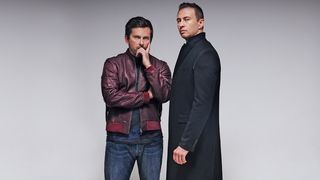
You've been working together since 2005, but your drum 'n' bass history stretches back a lot further.
JQ: "Me and my brother both started messing around in the Commodore days on some sort of free tracker software. Him and some of his mates clubbed together and bought a second-hand Akai S700 sampler, and, eventually, he started producing some of those early drum 'n' bass and breakbeat names, like Ray Keith and Jumpin' Jack Frost.
"Obviously, I had my brother's influence there, so I was surrounded by drum 'n' bass, but seeing that sampler at work also made a huge impression on me; just being able to chop up a loop and create something new. Drum 'n' bass owes a huge debt of gratitude to the sampler."
BC: "I was actually way more interested in football than music when I was a kid. I went for trials at Tranmere Rovers, and they kept asking me back, but one weekend I went to my first warehouse party and never managed to make it to the training ground. I saw the way the DJ controlled the crowd and I thought, 'That's what I'm going to do with my life.'
"Both me and Jamie are 80s kids, and we grew up on breakdancing, electro… Afrika Bambaataa. To me, that's the roots of jungle and drum 'n' bass right there. Alongside that, you'd got bands like Renegade Soundwave, the early breakbeat stuff, then Fabio And Grooverider beginning to speed things up a bit. I remember being at Eclipse in Coventry, hearing Mickey Finn play a hip-hop 12" at 45rpm and thinking, 'This is fucking crazy, but it totally makes sense to me'.
"I made my first record in 1993, but two years later I did a couple of new tracks, Sorrow and Liquid Groove. I went down to Metalheadz in London, handed a DAT to Goldie and one to LTJ Bukem. When I got back home the following morning, my mam said, 'You had a phone call from a bloke called Goldie and a bloke called Bukem'. We put out a 12" on Skanna Records and it sort of blew up a bit from there. All made on an Akai and a bit of hardware, with my mates."
"The way we wrote songs back then was completely different. Being inthe studio was all about the loop." Jamie Quinn
JQ: "I was thinking about those early years the other day, when I was in the studio. It dawned on me that the way we wrote songs back then was completely different. Being in the studio was all about the loop. You'd either start with a well-known jungle loop or dig through some
old funk vinyl to find something new. As things got a bit more adventurous, you might start adding a little bit of drum machine, too. But that's how every song started: you built from the loop upwards.
"These days, I don't think we ever start with drums or loops. It's always chords, melody or, very occasionally, vocals. The Magnetic Eyes vocal actually started life with a completely different backing track… different chords and everything. One day, we just stripped it back and started again, using the vocal as the starting point. For us, it's the melody and the vocals that provide the backbone."
Musically, your tunes are pretty dense and powerful. How easy is it to fit what is often a big, 'poppy' vocal over the top of that? Hope you don't mind us using the world 'poppy'!
BC: "Nah, we don't mind you using that word at all. You get different problems with different songs. The way we usually work is that we send out a backing track to a few singers, listen to what comes back, and we sort of know which vocal is going to work straight away. But we like to tailor each vocal to the song, so we then go back in the studio and re-record the one we like, just so we can zoom in on certain parts and get them gelling perfectly with the music."
JQ: "A vocal certainly complicates the mix because, as you say, there's a lot of music sitting behind it. The biggest headache is finding that right balance between the two - making sure people can hear the words, but not losing the power of the tune.
"A lot of the problems arise from the sounds that you're using and what you're playing. I know that sounds a bit basic, but if it was that basic, producers would never make those mistakes. The answers are usually very simple - a quick tweak of a synth filter and you've opened up some space for the vocals.
"But we also have a terrible tendency for overdoing the backing track. Piling on layers of window dressing and hooks and percussion and effects and… sometimes, it's just too much, and we have to start taking things away to find room for a vocal.
"Ha! Silly, really. If we'd just left a bit of room for the vocal in the first place, we'd have been fine."
BC: "Our problem is that we listen to too much 80s music. Everything was epic in the 80s. And we listen to Pink Floyd, too. That great big wall of sound. No wonder it takes us so long to mix a track!"
"Our problem is that we listen to too much 80s music. Everything was epic in the 80s." Brendan Quinn
Are there certain synths that seem to work better on those big, vocal-led tunes?
JQ: "There are a lot of soft synths and plugins on the computer - a lot of choice - but we always seem to get drawn to the same two or three. About half of the sounds in every song we do come from Sylenth1 - that's the main workhorse. But it's not just because of what it can do and how good it sounds; it's also incredibly intuitive. Yes, the filters are great, the distortion is great, but, for me, the important thing is that you don't have to pull out the manual every time you want to make a change. I can't tell you how crucial that is in the studio. If you have to come to a grinding halt every half hour because you don't know how to alter the sound, I can guarantee you'll stop using that synth.
"We also use Tone2's Gladiator and [Native Instruments'] Massive, but, for me, Massive is always a bit more of a head-scratcher. I just don't find it as enjoyable to program."
BC: "Yeah, but Massive will always deliver the goods. It never lets you down. I'm a big fan of Razor, too, especially for basses."
JQ: "Processing-wise, it's mainly the SoundToys Decapitator - that can give you everything from serious distortion to just a bit of subtle warmth on the vocals - and Ozone on the master buss. We sort of trust that to get the loudness that we're after."
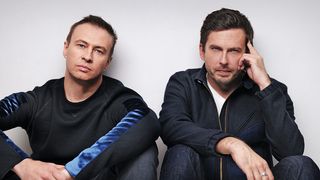
Did you get caught up in the loudness wars?
"Obviously, your songs needs to be loud enough for a club system, but I personally think the best songs out there at the moment are the ones that have sacrificed a bit of loudness and gone for something that's a bit cleaner and with some old-fashioned dynamics."
We haven't really talked about beats. You said that you no longer start your writing process with them, so at what point do they come in?
JQ: "Usually after there's a bit of structure and weight to a song. We've got a whole bunch of loops in the library, and we just fire them in one after the other until we find something that clicks.
"We never do that thing of writing a beat for a particular song. I don't think you can do that. Beats are… it's like they're a totally separate entity. I shut myself away for a couple of weeks and do nothing but beats; layering, adding percussion, messing with the envelopes, getting things popping with the Renaissance Axx, then trying to pull the whole thing together into a coherent whole. The Slate Digital Buss Compressor is great for that.
"In the early days, we used to do all the beats in Kontakt, but I was convinced they just didn't sound fat enough, so we started doing them straight into Cubase as audio. Kicks, snares, percussion all on their own group, different processing on the drum master, snare tails all finishing in the right place, transient shapers…"
JQ: "…Spectrum analyser to check the levels on the bottom end…"
BC: "It's such a long, complicated process. There was one song we started last year and I think we kicked it off around January. We didn't actually finish it until September!
"You have so much freedom as a producer these days, and that's brilliant; but sometimes, I do wish we could adopt some of that beautiful simplicity from the early days of drum 'n' bass. Production-wise, the tracks were all very raw back then. There was none of this, 'Let's put a bit of sidechain on my 15 layers of snare drum'. The songs were basic, crazy, energetic and they made us dance! Good times, man… good times."
Matrix & Futurebound's single, Don't Look Back, is out now. Keep your ears peeled for upcoming Matrix & Futurebound remixes of Eric Prydz and Oliver Heldens/Becky Hill.


Computer Music magazine is the world’s best selling publication dedicated solely to making great music with your Mac or PC computer. Each issue it brings its lucky readers the best in cutting-edge tutorials, need-to-know, expert software reviews and even all the tools you actually need to make great music today, courtesy of our legendary CM Plugin Suite.

“My love letter to a vanished era that shaped not just my career but my identity”: Mark Ronson’s new memoir lifts the lid on his DJing career in '90s New York
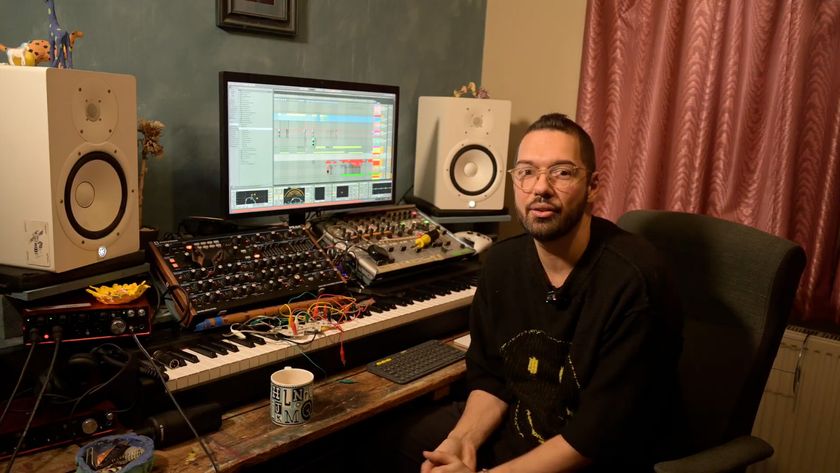
“I'm always starting up sessions and not finishing them, but I don't see that as unproductive”: Virtuosic UK producer Djrum talks creativity and making Frekm Pt.2

